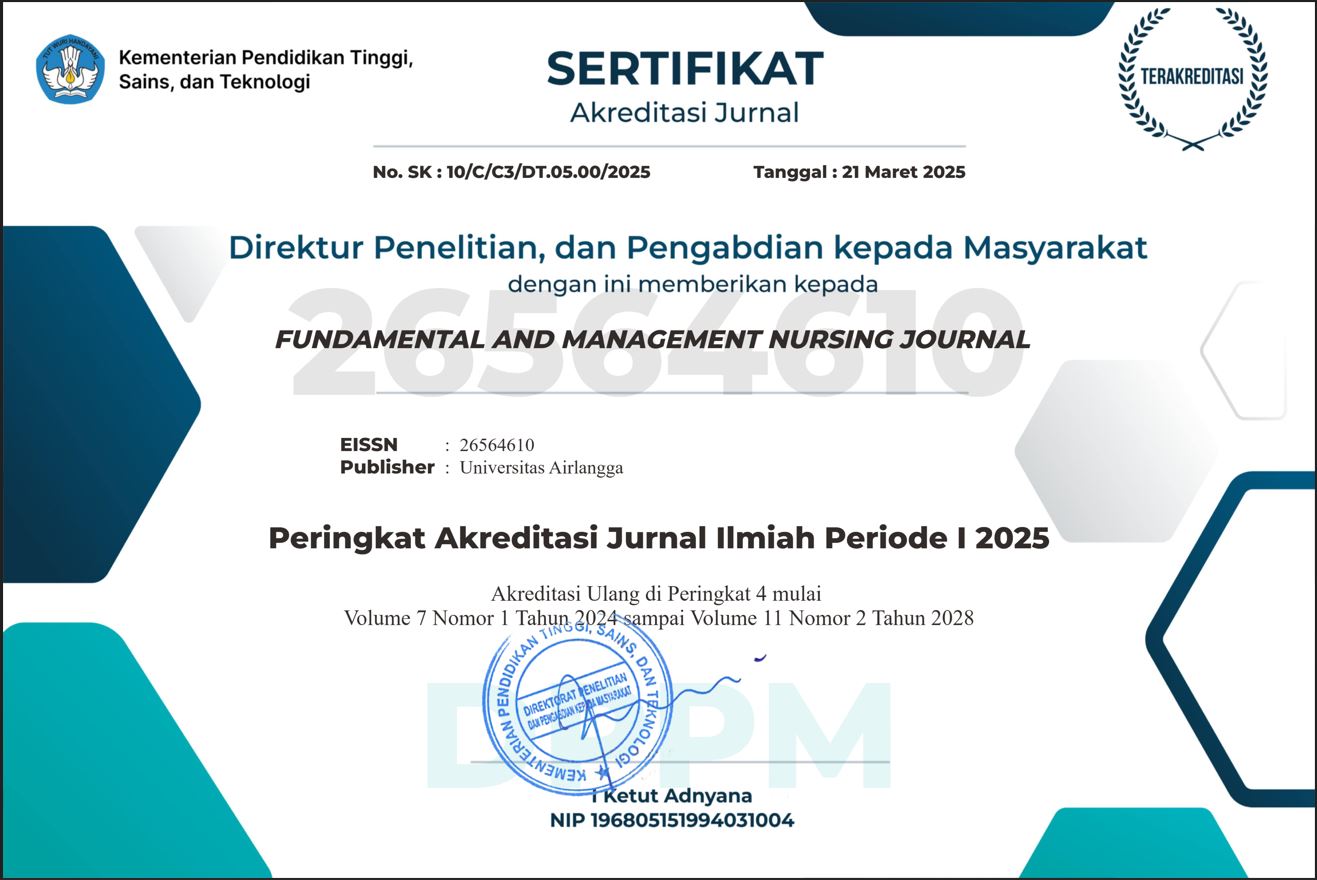Adaptation and Validation of the Indonesian Version of the Instrument to Measure Nursing Students' Attitudes Toward Clinical Duties
Downloads
Introduction: Nursing students' attitudes toward clinical rotation education, play an important role in increasing their motivation to achieve goals, alertness, and ability to capture complex information. A positive attitude tends to encourage students to improve the quality and effectiveness of learning. While negative attitudes tend to decrease motivation, student interaction, attendance, and respect for staff in the clinic. The attitude toward clinical duties is a widely used instrument to identify nursing students' attitudes during clinical rotation learning which is available in English. Therefore, this study aims to adapt this instrument into an Indonesian version, so that a valid and reliable instrument is obtained.
Method: This was a descriptive quantitative study carried out in February-March 2023, through the stages of forward translation, synthesis, backward translation, expert review, and instrument testing based on Beaton's cross-cultural adaptation framework. This study involved 33 nursing clinical rotation students, using a Consecutive sampling technique. The Correlation validity was tested using Pearson Product Moment with 95% CI (p=0.05) and Cronbach alpha was used to identify the internal consistency.
Results: The mean I-CVI and S-CVI/Ave of the instrument was 1.00. The results showed that 19 of the 25 question items tested had an r-count larger than the r-table (>0.344). The internal consistency test using Cronbach alpha showed a value of α = 0.916.
Conclusions: The Indonesian version of the attitude towards clinical duties instrument with 19 questions has good content validity with excellent internal consistency value.
Copyright (c) 2024 Suis Galischa Wati, Vania Dewintaputri

This work is licensed under a Creative Commons Attribution 4.0 International License.
1. The journal allows the author to hold the copyright of the article without restrictions.
2. The journal allows the author(s) to retain publishing rights without restrictions.
3. The legal formal aspect of journal publication accessibility refers to Creative Commons Attribution (CC BY).
















